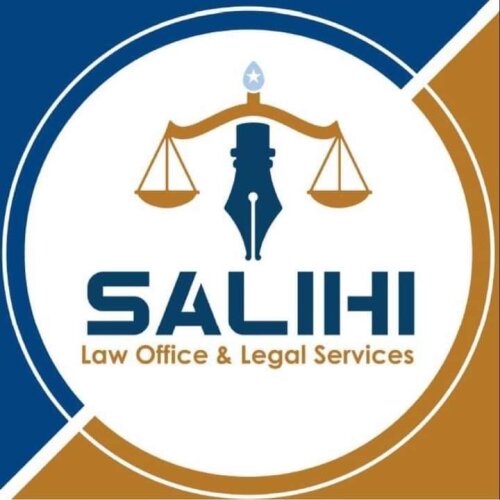Best Antitrust Litigation Lawyers in Somalia
Share your needs with us, get contacted by law firms.
Free. Takes 2 min.
Or refine your search by selecting a city:
List of the best lawyers in Somalia
About Antitrust Litigation Law in Somalia
Antitrust litigation refers to legal actions taken to address violations of competition laws, including anti-competitive practices such as price-fixing, market allocation, and abuse of market dominance. In Somalia, antitrust litigation is a developing area as the country rebuilds its legal and economic frameworks. Laws targeting monopolistic conduct and promoting fair competition are essential for economic growth and consumer protection. While Somalia does not currently have a comprehensive competition law like some other countries, there are evolving regulations and principles aimed at preventing anti-competitive practices and ensuring market fairness.
Why You May Need a Lawyer
Antitrust issues can be complex and difficult to navigate, especially given Somalia's evolving legal environment. You may need a lawyer in situations such as:
- Being accused of monopolistic practices or unfair competition
- Suspecting illegal collusion or unfair trade practices by competitors
- Facing investigations by regulatory authorities for competition law breaches
- Seeking to challenge anti-competitive mergers or acquisitions
- Negotiating settlements or compliance agreements related to competition issues
- Understanding your rights and obligations under Somalia’s emerging competition law framework
Local Laws Overview
Somalia's legal system is influenced by civil law traditions, customary law (Xeer), Islamic (Sharia) principles, and international best practices. While there is no comprehensive antitrust statute yet enacted nationwide, recent years have seen efforts by the Somali government to address economic reforms and competition-related concerns as part of broader rebuilding efforts. Key aspects relevant to antitrust litigation include:
- General prohibitions against anti-competitive agreements, price-fixing, and bid rigging
- Restrictions on abuse of dominant market positions and monopolies
- Cautious oversight of mergers and acquisitions that may substantially lessen competition
- Remedies and penalties for entities engaging in banned anti-competitive behavior
- Influence of international standards and regional practices, especially those promoted by the African Union and similar bodies
Frequently Asked Questions
What is antitrust litigation?
Antitrust litigation refers to legal proceedings initiated to address violations of competition law, such as price-fixing, monopoly practices, and other forms of anti-competitive conduct.
Does Somalia have specific antitrust laws?
Somalia does not yet have a single, comprehensive antitrust statute. However, general principles under civil and commercial law, as well as international standards, are beginning to be applied to competition issues.
Who enforces antitrust laws in Somalia?
Enforcement may fall under the purview of various governmental and judicial bodies, including the Ministry of Commerce and Industry, local regulatory authorities, or relevant courts.
What kinds of business practices are considered anti-competitive?
Common anti-competitive practices include price-fixing, market allocation, bid rigging, abuse of dominance, exclusive dealing, and unfair restrictions on business competition.
Can individuals or companies bring antitrust claims to court?
Yes, individuals and companies harmed by anti-competitive conduct may pursue claims or damages in court, subject to procedural requirements and the evolving legal framework.
Are mergers and acquisitions subject to review?
Yes, mergers and acquisitions that risk reducing competition or creating a monopoly may come under the scrutiny of governmental authorities. Approval may be required for certain deals.
What penalties exist for violating competition laws?
Penalties can include fines, injunctions, damages, and the invalidation of illegal agreements, depending on the gravity of the offense and court decisions.
How can a lawyer help with antitrust issues?
A lawyer can advise on compliance, represent you in investigations or lawsuits, assist with negotiations, and help you understand your rights and obligations under the law.
Can foreign businesses face antitrust scrutiny in Somalia?
Yes, foreign entities conducting business in Somalia are subject to local laws and can be investigated or prosecuted for anti-competitive conduct affecting Somali markets.
What should I do if I believe a competitor is acting illegally?
You should consult a qualified lawyer with experience in antitrust matters to discuss evidence, possible remedies, and steps to file a complaint with the relevant authorities or courts.
Additional Resources
For further help and information about antitrust litigation in Somalia, consider the following resources:
- Ministry of Commerce and Industry - This government agency oversees competition and commercial policy issues in Somalia.
- Local Chambers of Commerce - These organizations can provide information and guidance on business standards and complaints mechanisms.
- Somali Bar Association - For referrals to experienced lawyers and legal resources concerning competition law.
- United Nations and African Union Economic Programs - These organizations often publish reports and guidance on best practices for market regulation.
- Business associations and networks - Can facilitate access to peer advice and legal workshops focused on compliance and fair competition.
Next Steps
If you are facing an antitrust issue or simply want to ensure compliance with Somalia’s emerging competition laws, here are suggested next steps:
- Gather all relevant documents and information related to your business practices or the alleged anti-competitive conduct.
- Schedule a meeting with a qualified legal professional specializing in competition law.
- Prepare a list of questions and concerns to address during your consultation.
- Follow your lawyer’s advice regarding risk assessment, compliance, or potential litigation strategies.
- Consider mediation or other alternative dispute resolution methods if appropriate.
- Stay informed about legal developments in Somalia’s competition law by consulting reputable resources and attending relevant seminars or workshops.
Lawzana helps you find the best lawyers and law firms in Somalia through a curated and pre-screened list of qualified legal professionals. Our platform offers rankings and detailed profiles of attorneys and law firms, allowing you to compare based on practice areas, including Antitrust Litigation, experience, and client feedback.
Each profile includes a description of the firm's areas of practice, client reviews, team members and partners, year of establishment, spoken languages, office locations, contact information, social media presence, and any published articles or resources. Most firms on our platform speak English and are experienced in both local and international legal matters.
Get a quote from top-rated law firms in Somalia — quickly, securely, and without unnecessary hassle.
Disclaimer:
The information provided on this page is for general informational purposes only and does not constitute legal advice. While we strive to ensure the accuracy and relevance of the content, legal information may change over time, and interpretations of the law can vary. You should always consult with a qualified legal professional for advice specific to your situation.
We disclaim all liability for actions taken or not taken based on the content of this page. If you believe any information is incorrect or outdated, please contact us, and we will review and update it where appropriate.
Browse antitrust litigation law firms by city in Somalia
Refine your search by selecting a city.









